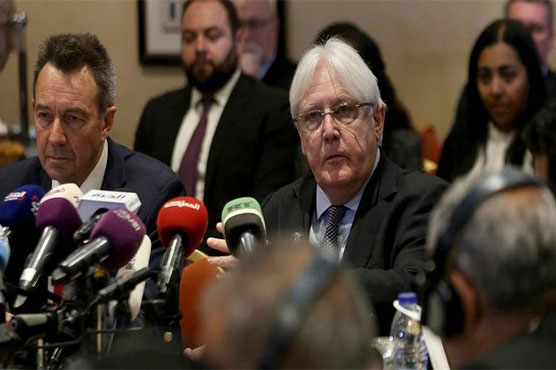Yemen rivals reach deal on large-scale prisoner swap

Rival parties in Yemen conflict have reached an agreement on the first large-scale prisoner swap.
AMMAN (AFP) - Rival parties in the Yemen conflict have reached an agreement on the first large-scale prisoner exchange since the start of the five-year conflict, the UN said Sunday.
The announcement came after a seven-day meeting in the Jordanian capital Amman.
A joint statement from the UN and the International Committee of the Red Cross called the deal "a step towards the fulfilment of the parties commitment to the phased release of all conflict-related detainees according to the Stockholm Agreement".
The number of prisoners to be released was not specified and neither was the timing.
The conflict in Yemen pits Iran-backed Huthi rebels against government forces supported by a Saudi-led military coalition.
The warring parties agreed to exchange some 15,000 detainees as part of a UN-mediated deal brokered in Sweden in 2018.
"This is a purely humanitarian measure that must be implemented without delay, according to what was agreed in Jordan," the Yemeni foreign ministry said on Twitter.
Huthi spokesman Mohammed Abdel Salam tweeted that "1,400 prisoners, including Saudis and Sudanese, will be freed".
The UN special envoy for Yemen, Martin Griffiths, urged the warring parties "to move forward with the exchange they agreed on today (Sunday) with the utmost sense of urgency.
"Progress has been too slow on this front," he said.
The committee overseeing the Sweden prisoner swap plans to meet again in late March "to discuss further exchanges", the statement added.
Both sides have released hundreds of prisoners over the past months as part of sporadic swaps.
"Despite ongoing clashes, we saw that the parties have found common humanitarian ground that will allow many detainees to return to their loved ones," said Franz Rauchenstein, the ICRC s head of mission in Sanaa.
The Yemen conflict has killed tens of thousands of people, most of them civilians, and sparked what the United Nations calls the world s worst humanitarian crisis.

